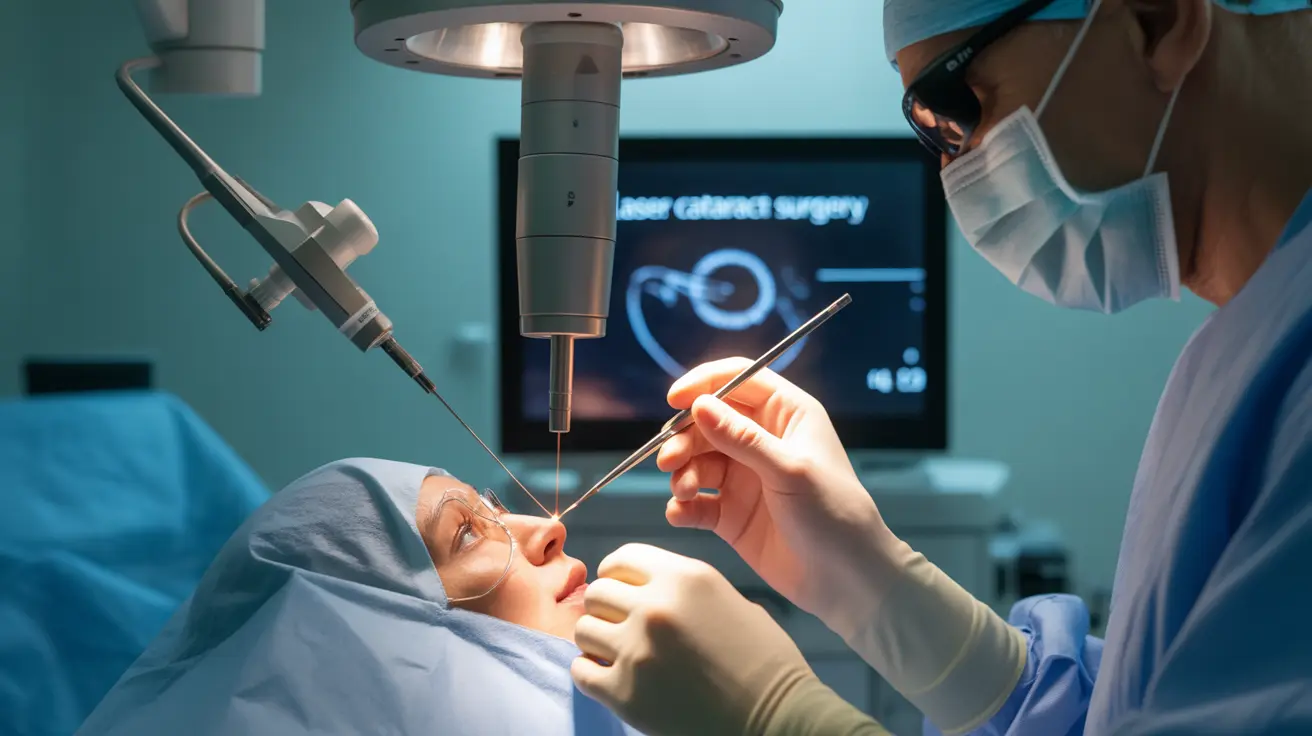Laser cataract surgery represents a significant advancement in vision correction technology, offering patients a precise and sophisticated approach to treating cataracts. This innovative procedure combines the latest laser technology with traditional surgical techniques to provide enhanced accuracy and potentially better visual outcomes for many patients.
Understanding the benefits, recovery process, and candidacy requirements for laser cataract surgery can help you make an informed decision about your eye health. This comprehensive guide explores everything you need to know about this modern surgical approach.
Understanding Laser Cataract Surgery Technology
Laser cataract surgery utilizes femtosecond laser technology to perform several crucial steps of the procedure with computer-guided precision. The laser creates precise incisions in the cornea, helps break up the clouded lens, and ensures accurate positioning of the new artificial lens. This technology offers remarkable consistency and customization possibilities that weren't available with traditional manual techniques.
Advantages of Laser-Assisted Cataract Surgery
Modern laser cataract surgery offers several distinct advantages over traditional methods:
- Greater precision in corneal incisions
- More accurate capsulotomy (opening in the lens capsule)
- Enhanced lens fragmentation capabilities
- Reduced ultrasound energy requirements
- Potential for better visual outcomes
- Increased surgical predictability
The Surgical Procedure: What to Expect
The laser cataract surgery procedure typically takes about 20-30 minutes per eye and involves several key steps:
Pre-Surgery Preparation
Your surgeon will perform detailed eye measurements and imaging to create a customized surgical plan. Eye drops will be administered to dilate your pupils and numb your eyes.
During the Procedure
The laser portion of the surgery creates precise incisions and softens the cataract. Your surgeon then removes the clouded lens and implants the artificial intraocular lens (IOL). The procedure is typically painless, as your eye is completely numbed.
Recovery and Aftercare
Recovery from laser cataract surgery is generally straightforward, with most patients experiencing improved vision within a few days. Following your surgeon's post-operative instructions is crucial for optimal healing and results.
Timeline for Recovery
Most patients can resume light activities within 24 hours and return to normal activities within a week. Complete healing typically occurs within 4-6 weeks.
Choosing the Right Intraocular Lens
Several types of artificial lenses are available for implantation during laser cataract surgery:
- Monofocal IOLs (single vision distance or near)
- Multifocal IOLs (multiple focal points)
- Toric IOLs (for astigmatism correction)
- Extended depth of focus IOLs
Frequently Asked Questions
What are the main benefits of laser surgery for cataracts compared to traditional cataract surgery? Laser cataract surgery offers greater precision, potentially better visual outcomes, and reduced ultrasound energy requirements. The computer-guided laser technology creates more accurate incisions and helps break up the cataract more efficiently.
How long does it take to recover from laser cataract surgery and when can I resume normal activities? Most patients can resume light activities within 24 hours and return to normal activities within a week. Complete healing typically occurs within 4-6 weeks, though vision improvement is often noticeable within a few days.
Is laser cataract surgery painful and what happens during the procedure? The procedure is typically painless as your eye is completely numbed. The laser creates precise incisions and softens the cataract, followed by removal of the clouded lens and implantation of the artificial lens. The entire process usually takes 20-30 minutes per eye.
Who is a good candidate for laser-assisted cataract surgery and how do I know if it is right for me? Most people with cataracts are candidates for laser surgery. However, certain factors like eye anatomy, other eye conditions, or general health issues may affect eligibility. A comprehensive eye examination and consultation with an eye surgeon will determine if you're a suitable candidate.
What types of artificial lenses can be implanted during laser cataract surgery and will I still need glasses afterward? Various IOL options are available, including monofocal, multifocal, toric, and extended depth of focus lenses. The need for glasses after surgery depends on the type of IOL chosen and your specific vision needs. Some patients achieve freedom from glasses, while others may still need them for certain activities.




